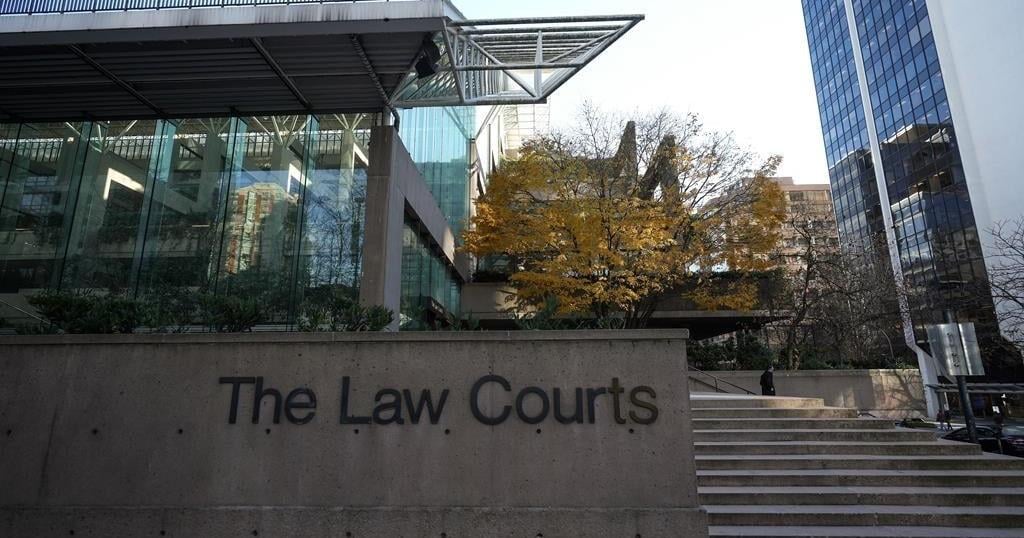TORONTO – Andrée McGrath is living “a really wonderful life.”
She and her husband of 49 years, Rick McGrath, live in Kanata, Ont., where they golf, take walks and laugh loudly and often. They travel south for the winter and adore their two grown-up sons.
After the 68-year-old was diagnosed with Alzheimer’s disease about a year ago, she cried.
“A lot, a lot, a lot — I cried,” McGrath said in a phone interview, choking up.
“I have a wonderful marriage and I frankly wish I had, you know, 20 years of good health, 20 more years to enjoy it,” she said.
McGrath is determined to keep doing the things she loves. When the time comes that she can’t, she said, she wants a medically assisted death.
”I am so in favour of MAID. We’ve already talked to our family doctor about it and he said, ‘well, we’re not there yet.’ So he knows that his hands are tied,” she said.
As of Wednesday, people with dementia in Quebec are allowed to make advance requests for MAID, before they lose the capacity to provide informed consent. But such requests are still illegal under the Criminal Code.
“If we could do that in Ontario, I’ll probably be one of the first ones to line up and sign it,” McGrath said.
After caring for her mother and grandparents in the late stages of Alzheimer’s disease years ago and watching them forget who she was, McGrath is determined not to let her own dementia progress that far.
“That’s really heartbreaking,” she said.
The federal government has said it still needs to do more consultations, which will start in November, before making a decision about advance MAID requests in the rest of the country.
The Alzheimer Society says people with dementia should have the right to request medical assistance in dying in advance — but it must not be a replacement for high-quality palliative care.
“People with a diagnosis of dementia deserve the same rights as everyone else. So if MAID is a legal end of life option for people, then we believe that it should be accessible to people with dementia,” said Cathy Barrick, CEO of the Alzheimer Society of Ontario, in an interview.
But it’s important to make sure patients also have the option to receive dementia-specific, comprehensive palliative care that would provide the best quality of life possible, she said.
”Having a choice between sort of feeling like you’re going to languish and be neglected (in a long-term care home) — it’s really no choice at all,” Barrick said.
“We wouldn’t want people to make a decision to end their life prematurely out of fear of what might happen. So obviously a lot of our advocacy is around making sure that people have options available to them at end of life.”
The challenge with Alzheimer’s disease and other forms of dementia is that it’s hard for someone to predict how they will feel at a later point in time as their disease progresses, Barrick said.
In signing an advance request for MAID, patients would need to communicate multiple specific circumstances that would have to happen in order for them to have MAID in the future, such as not being able to recognize family members and being unable to communicate.
”The first and the most important thing is for them to make their wishes known and they need to be abundantly clear about what those wishes are,” said Barrick.
“It needs to be extremely specific, you know, not something vague of like, ‘well, if it seems like I’m suffering, you know, do it then,'” she said.
Dr. Samir Sinha, geriatrician and clinician scientist with Sinai Health System and University Health Network in Toronto, said it’s critical to have a family member or friend to serve as an advocate to ensure their loved one’s wishes are carried out in the spirit they were intended.
”You might say, ‘if I end up in a state where I cannot recognize my own family members, I would consider that intolerable suffering. So I would want someone to end my life at that point,” said Sinha, who served on a federal subcommittee looking at the issue of advance requests for MAID.
But three or four years later, the patient might be at the point where they don’t recognize their family members, yet “you go in to see the person and, you know, there they are smiling and happy to see you. They don’t know who you are, but they seem to be content. They seem to be happy,” he said.
“And then the question is, what do you do then?”
Among the several conditions that have to be met in order for a person to obtain medical assistance in dying following an advance request in Quebec is that the person is “exhibiting, on a recurring basis, the clinical manifestations related to their illness and described in their request,” and that a physician or specialized nurse practitioner has cause to believe “the person is experiencing enduring and unbearable physical or psychological suffering,” the province’s website says.
It’s also important that advance requests for MAID “are not considered kind of a ‘one and done’ thing,” Sinha said.
When people are first diagnosed, it’s “absolutely devastating,” he said, and they may have very specific ideas of what circumstances they don’t want to live with down the road.
But “dementia is a journey that can carry on for years,” Sinha said.
“Care needs and preferences will evolve with time,” and patients should regularly revisit their advance requests with their caregivers to ensure the condition under which they would want MAID are still the same, he added.
Barrick emphasized that a diagnosis of Alzheimer’s disease or other forms of dementia “is not the end,” noting that although everyone is different, people generally live five to seven years after learning they have it.
“For most people, most of that time can be quite positive,” she said.
“People go on to continue on with their life. Some people can continue to work, travel, socialize — all the things (that)have meaningful engagement in their life.”
Having MAID as an option for when they deteriorate can actually provide reassurance and removes a worry that allows some people with dementia to live their lives as well as possible, Barrick said.
This report by The Canadian Press was first published Oct. 30, 2024.
Canadian Press health coverage receives support through a partnership with the Canadian Medical Association. CP is solely responsible for this content.
























